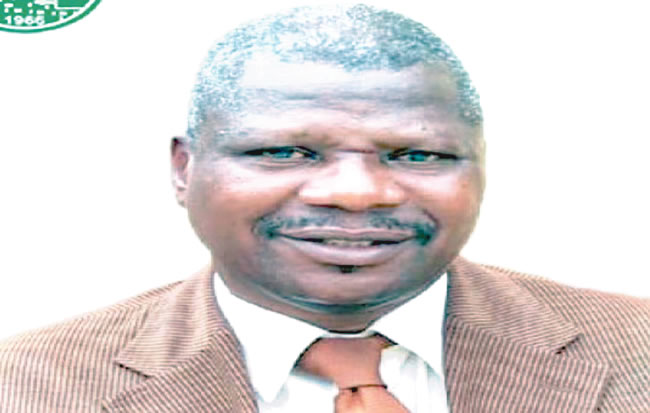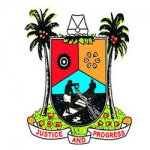Bisi Adedire is a fellow of the Nigerian Institute of Town Planners (NITP) and former Chairman of Lagos State Chapter of the institute. In this interview with DAYO AYEYEMI, the settlement development expert shares his opinion about the recent Economic Intelligence Unit (EIU)’s report on Lagos and advised the state government on what to do to improve Lagos’ liveability.
Do you agree with the Economic Intelligence Unit’s report, ranking Lagos as second worst city to live among 172 cities worldwide?
This is a very tricky question because if I say no, I would be questioning the competence of a unit that has been in existence since 1946 and had over the years given data and reports that have been confirmed accurate and useful for several forecasts and research by academic institutions and professionals. I read sometimes ago that many world’s leading business schools and Ivy League colleges attested to the quality of the report being provided by EIU. So it would be quite difficult to fault a ranking that is coming from them. Importantly, we need to know that the Global Liveability ranking by EIU is a yearly assessment of cities which started in year 2002. Therefore, it is not a new initiative. It will shock you to know that last year, Lagos was also ranked second to the last on the list, only above Damascus, a city in Syria just like this year. And the truth is, Lagos has always been this low on the ranking since 2015. So there is nothing new about this ranking. We can only conclude that Lagos and Nigeria by extension is gradually becoming a failed nation.
To be factual, when we critically analyse the present state of the five major factors considered for this ranking; which are stability, healthcare, culture & environment, education and infrastructure in Lagos State, we are most likely to conclude that the ranking is correct. Maybe if the ranking was done looking at just the infrastructure as you mentioned, probably we would have been better placed because as seen in the breakdown of the result, Lagos performed better than most cities placed above us in term of infrastructure. However, the aggregate of these factors affected our ranking. If we ask ourselves, how stable is security in Lagos state? The rate of crime, theft, civil unrest, violent is immense. Moving to healthcare, what is the ratio of public healthcare to the state’s population? Even the ones available, what is the quality of service? These and many more questions can make us conclude that the ranking is 100 per cent accurate.
What are factors to be considered for liveability of a city?
Generally, liveability is measured by factors that provide or enhance the quality of life. Basically, these factors are water, food, housing, transport, health care, education and a safe and stable environment. People will desire to live and remain in a place where these facilities are available and accessible. If we are to go by the five (5) factors considered by EIU in their global liveability ranking, that is; stability, healthcare, culture & Environment, Education and Infrastructure then I think we have the factors already.
Stability talks about the level of security within the environment. No one would want to live in a place known for crime, threat, violence, unrest, terrorism, and all manners of conflict. Like the verse from the song of a popular Nigerian artiste, nobody wan die but we won go heaven. That is, the life of a man is very precious to him. So stability is a very important factor for liveability.
Healthcare, the major determinant of mortality rate in any country is the availability of healthcare facility in the country. According to World Health Organisation (WHO), the top 10 global causes of death in 2019 were health related problems such as heart disease, stroke, respiratory infections, cancers, kidney diseases etc. The availability and quality of healthcare services either private or public is therefore essential to the liveability of any city.
Culture & Environment: Culture and environment in this context could talk about non-restriction to social and religious activities, cultural tolerance, environment free from flooding, earthquake, landslides, friendly climatic conditions, etc. These are major considerations in choosing a place to live.
Education – According to an English writer/philosopher, G.K. Chesterlon, Education is simply the soul of a society as it passes from one generation to another. The importance of knowledge to a society can’t be overemphasised that is why it is a major factor for liveability. The availability, provision and quality of private and public education are focused on in this parameter. Infrastructure – This covers transport, housing, water, energy, electricity, telecommunication, etc. All of these must be available, accessible (proximity) and affordable.
What can state government/stakeholders do to improve the liveability of Lagos?
I would advise the state government and stakeholders not to compromise on standard and quality when carrying out any project and rendering service. The standard of the teachers who teach our children in public or private institutions should be top-notched. The roads or buildings to be constructed must be done with high quality materials. Lagos State has witnessed countless numbers of building collapse in the last five years, most of which are as a result of compromise on standards.
Secondly, implementation of available development plans. I am aware that there a lot of plans that have been prepared by the government. For instance, there is the drainage master plan that I know can solve many of our environmental and waste management challenges but it is not being implemented. The government needs to start implementing these plans for appropriate usage.
Thirdly, the state government should constantly work at providing enabling environment for investors. As challenging as it, Lagos State is still the choice destination for investors in Nigeria. Unarguably, Lagos State creates more investment opportunities than any other states in the country. As such, the government should leverage on this by ensuring improved investment conditions in the state.
Lastly, to the stakeholders and by extension all Lagosians, we must all choose to uphold the sanctity of the State. We must thrive to bring the state to a place of sanity. We should have the mindset that the state belongs to us all; with this, we won’t contravene planning regulations, environmental rules, traffic rules and other statutory guidelines. We won’t take laws into our hands by fermenting violent and destroying public facilities.
Finally, let me conclude by saying that both the state government and stakeholders must admit that the interest of the state should always be greater than personal or political interest at any given time.
What is the government not doing right now?
I have always reiterated that government is supposed to be a service oriented not a profit oriented organisation. Government at any level should be rendering services to people and not focused on making money off the people. This is where the government is getting it wrong. And the annoying part is that the money being made is not being used to service the people they govern or manage. How do I mean when I said government is now profit oriented? When a land owner wants to apply for Certificate of Occupancy for his property, he is asked by the government to pay exorbitant fee. When he wants to secure planning permit for this proposed development, he is asked to pay huge amount by the government? Now tell me how will such a man build his house and then make it affordable for people. It is not possible. And you need to know that this is applicable in all ministries, departments and agencies of the government. Until the government revert to her major role of rendering services and not making profit, Lagos State being liveable would be a task that will never be achievable. Let me give you an example from Vienna, Austria, the city ranked as number 1 in the Global liveability ranking for year 2022. The fee for planning permit for residential building is only $1,000. Imagine how low this fee is. As a matter of fact, you can get a fencing permit with just $50. We need to get to this level before we can be talking about Lagos State being liveable.
ALSO READ FROM NIGERIAN TRIBUNE
- ASUU Extends Strike By 4 Weeks
- Forex Crisis: Fresh Facts Reveal NNPC’s $2.7bn Remittance To Its CBN Accounts In 6 Months
WATCH TOP VIDEOS FROM NIGERIAN TRIBUNE TV
- Let’s Talk About SELF-AWARENESS
- Is Your Confidence Mistaken for Pride? Let’s talk about it
- Is Etiquette About Perfection…Or Just Not Being Rude?
- Top Psychologist Reveal 3 Signs You’re Struggling With Imposter Syndrome
- Do You Pick Up Work-Related Calls at Midnight or Never? Let’s Talk About Boundaries







